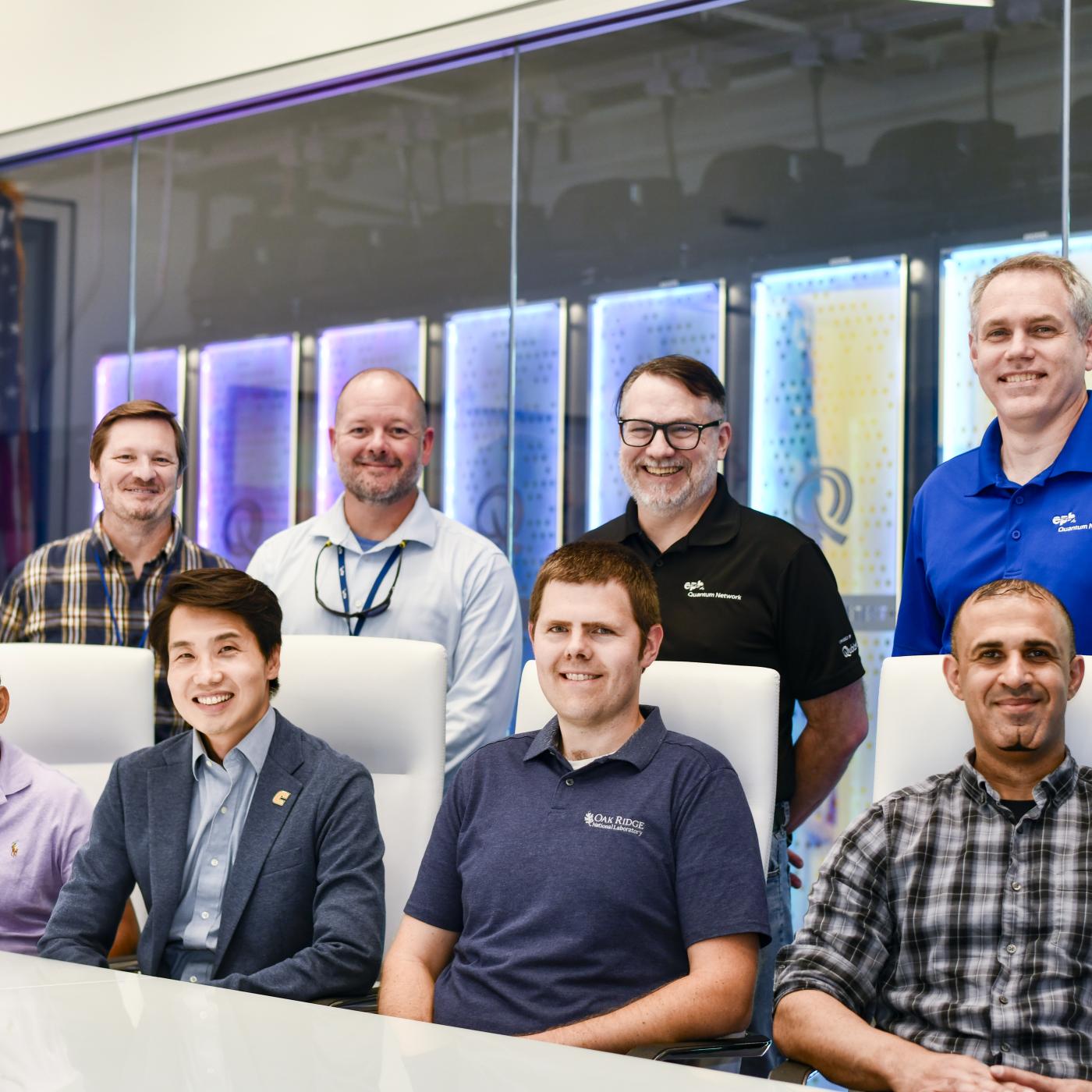
Filter News
Area of Research
News Topics
- (-) Bioenergy (17)
- 3-D Printing/Advanced Manufacturing (7)
- Advanced Reactors (1)
- Artificial Intelligence (8)
- Big Data (6)
- Biology (16)
- Biomedical (5)
- Biotechnology (3)
- Buildings (4)
- Chemical Sciences (4)
- Clean Water (4)
- Climate Change (21)
- Composites (1)
- Computer Science (20)
- Coronavirus (3)
- Cybersecurity (3)
- Decarbonization (14)
- Energy Storage (5)
- Environment (33)
- Exascale Computing (4)
- Frontier (4)
- Fusion (4)
- Grid (3)
- High-Performance Computing (7)
- Hydropower (3)
- Isotopes (1)
- ITER (1)
- Machine Learning (5)
- Materials (8)
- Materials Science (5)
- Mercury (2)
- Microscopy (7)
- Nanotechnology (4)
- National Security (7)
- Net Zero (2)
- Neutron Science (7)
- Nuclear Energy (8)
- Partnerships (1)
- Physics (3)
- Polymers (1)
- Quantum Computing (5)
- Quantum Science (5)
- Security (2)
- Simulation (3)
- Space Exploration (1)
- Summit (8)
- Sustainable Energy (14)
- Transportation (6)
Media Contacts
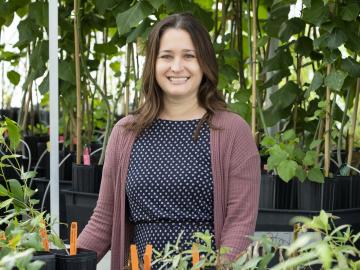
The Center for Bioenergy Innovation at ORNL offers a unique opportunity for early career scientists to conduct groundbreaking research while learning what it takes to manage a large collaborative science center.
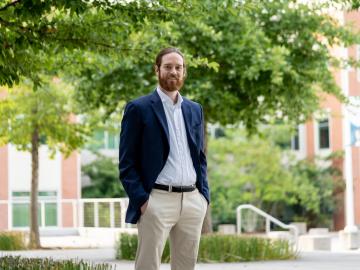
Bryan Piatkowski, a Liane Russell Distinguished Fellow in the Biosciences Division at ORNL, is exploring the genetic pathways for traits such as stress tolerance in several plant species important for carbon sequestration
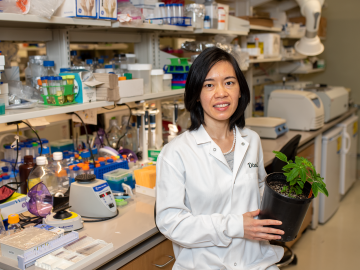
A team of researchers working within the Center for Bioenergy Innovation at ORNL has discovered a pathway to encourage a type of lignin formation in plants that could make the processing of crops grown for products such as sustainable jet fuels easier and less costly.
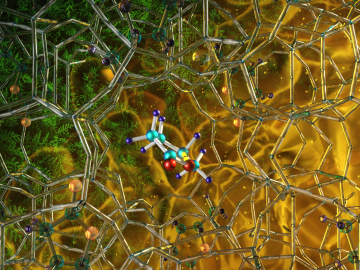
Illustration of the optimized zeolite catalyst, or NbAlS-1, which enables a highly efficient chemical reaction to create butene, a renewable source of energy, without expending high amounts of energy for the conversion. Credit: Jill Hemman, Oak Ridge National Laboratory/U.S. Dept. of Energy
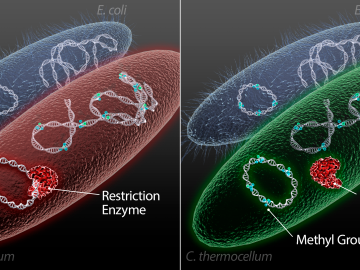
Scientists at the US Department of Energy’s Oak Ridge National Laboratory have demonstrated a method to insert genes into a variety of microorganisms that previously would not accept foreign DNA, with the goal of creating custom microbes to break down plants for bioenergy.
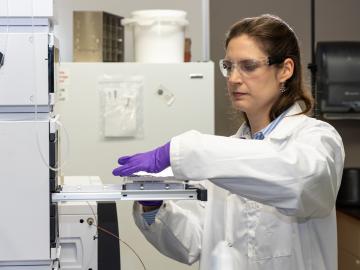
Early career scientist Stephanie Galanie has applied her expertise in synthetic biology to a number of challenges in academia and private industry. She’s now bringing her skills in high-throughput bio- and analytical chemistry to accelerate research on feedstock crops as a Liane B. Russell Fellow at Oak Ridge National Laboratory.
![Coexpression_hi-res_image[1].jpg Coexpression_hi-res_image[1].jpg](/sites/default/files/styles/list_page_thumbnail/public/Coexpression_hi-res_image%5B1%5D_0.jpg?itok=OnLe-krT)
While studying the genes in poplar trees that control callus formation, scientists at Oak Ridge National Laboratory have uncovered genetic networks at the root of tumor formation in several human cancers.


